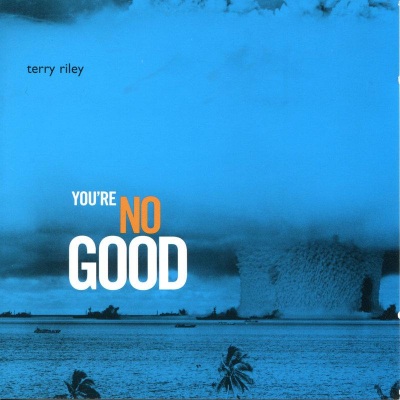
You're No Good
by Brian OlewnickIt's amazing what can get unearthed by rummaging around in the early careers of composers. In this two-disc set, Organ of Corti has discovered one tremendous and surprising track from Terry Riley and another superb live performance of a piece Riley fans are already familiar with. It's the title cut, You're No Good, that's the shocker. Possibly taking a cue from Steve Reich's mid-'60s tape pieces Come Out and It's Gonna Rain, Riley sought to combine a popular music form, in this case of the Motown variety, with ideas on phasing and out-of-sync iterations. The work begins with several minutes of rumbling, harsh electronic tones; already the listener is thinking that this is unlike any previous and/or typical Riley fare. Suddenly, it erupts into a funky, funny soul tune with a female vocalist bemoaning the unbecoming qualities of her lover. This goes on for a few minutes more, very enjoyable in its clunky, maybe a bit naïve, way until Riley starts messing around with the tape, double-tracking it at various points, producing a very unsettling sense. Additionally, this is done with enormous (and appealing) crudity and sheer messiness, obviously the result of "hands-on" tape splicing; no slickness here. Sometimes a channel drops out entirely for a few seconds only to burst back in jarring fashion. Toward the end of the composition (which, though it occupies the entire first disc, is only about 20 minutes long), Riley introduces blooping sine tones that further heighten the sense of the bizarre, as though the poor song had been mercilessly submerged in some distant sonic universe. Fans who only know Riley from his gentler minimalist recordings will be in for something of a shock. The second disc consists of an extract of a 1967 live performance of his well-known Poppy Nogood with its Indian-derived meditations on organ and soprano saxophone. It's every bit as good as the better-known version that originally appeared on the A Rainbow in Curved Air album that brought Riley to public prominence. You're No Good is a fine and fascinating document and sheds an unexpected light on this composer's formative years.
